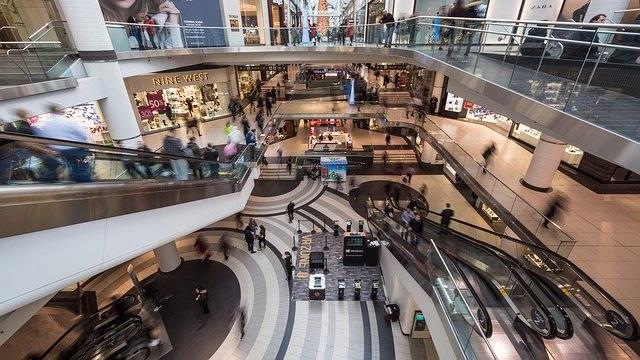

The rapid spread of Covid-19 has sparked massive disruption across industries and sectors, but one of the most visible effects of the crisis for individuals around the globe is the impact on physical retail space.
High streets and malls have seen closures around the globe, and in countries such as the UAE, which host thriving retail economies that leverage high numbers of overseas visitors, the impact has been swift and profound.
Coupled with social distancing, temporary mall closures and restrictions on movements, the pandemic is accelerating e-commerce, experiential and frictionless trends within the retail ecosystem.
E-commerce is the obvious one. In the UAE, Carrefour has seen a 300 per cent increase in online orders, and this trend is being echoed by specialist online aggregates such as El Grocer, which has seen an up to 500 per cent increase in shoppers, order frequency and basket size across the UAE.
We could see the start of ‘e-tail first’ markets that take consumers on online retail journeys that deliver information, experiences and inspiration to help them make informed purchase decisions
However, it is likely that working practices will not be the only thing to change post Covid-19. Historically and certainly before the crisis hit, e-commerce in the region was more about merchandising products, and it was a place that shoppers went to simply buy.
Now, it is likely this will change. In the same way shoppers flock to malls for an overall entertainment experience, this will need to be true of a new ecommerce ecosystem, which will inevitably include ever richer content.
We have seen a rise in popularity of ‘live stream’ selling on apps such as Shein and Jollychic, as well as brands like Amazon and Noon continuing to push the boundaries of content and engagement.
We could well be seeing the start of ‘e-tail first’ markets that emphasise leading consumers on online retail journeys that deliver them information, experiences and inspiration to help them make informed purchase decisions.
Over 60 per cent of searches on Amazon are not for specific brands, so it is evident that shoppers are willing to explore. E-retailers must therefore provide content to satisfy this exploration or lose out to platforms that do so.

Dubai Mall and Noon have partnered to offer a virtual shopping mall aimed at the same consumers that would normally visit their physical stores
Changing physical retail
Offline retail is going to be equally challenged to change. Even before the Covid-19 crisis, new malls and shopping areas were being built in the UAE at a rate faster than the expected growth in sales, raising concerns about oversupply.
As we emerge from this crisis, many malls and retailers will be forced to search for new strategies to boost footfall and improve leisure time within their facilities.
The good news is that retail destinations across the board are already making progress on this.
Dubai Mall is in a partnership with Noon to offer a virtual shopping mall aimed at the same consumers that would normally visit their physical stores.
Providing the same level of experience shopping online as is experienced offline is the single biggest issue for retailers today, and the events of the past few weeks have added further urgency to the challenge.
The UAE's logistics network has shown a remarkable robustness in this time of increased need
Frictionless delivery
Online retailers across the region have also been investing heavily in fulfilment, logistics and supply chains over the past few years to create a much more frictionless retail experience.
The ‘convenience culture’ here sees deliveries from fashion retailers like Namshi arrive at your doorstep within two hours – a testament to the advancements made by retailers in the region.
The current climate is an excellent opportunity to provide minimal contact services to customers and ensure that products arrive on time and are safe.

The pandemic has accelerated the shift to e-commerce, especially contactless delivery
The logistics network across the country has shown a remarkable robustness in this time of increased need, and with an almost unchanged level of service since the outbreak, this has gone some way to negate panic and the perceived need to stockpile.
This is largely down to the UAE’s long-standing affinity with third-party delivery providers, who have robust last-mile fulfilment capabilities.
The ease of accessibility to these providers for retailers can expedite partnerships quicker than in other places in the world. This gives the UAE a unique advantage in being able to pivot and adapt to meet the evolving needs and demands of the consumer.
The UAE more than most is in an advantageous position to continue supplying the population with the goods and services it needs during this pandemic.
But exactly what this means for retailers once we are back to ‘normal’ will rely heavily on how they pivot and embrace the omni-channel and frictionless retail experiences that their customers will no doubt increasingly demand in the future.
About the author
 Richard Nicoll is chief commerce officer and managing director of Liquid, a UAE-based retail marketing firm. He has 25 years’ experience in global retail with companies such as Saatchi & Saatchi and Publicis.
Richard Nicoll is chief commerce officer and managing director of Liquid, a UAE-based retail marketing firm. He has 25 years’ experience in global retail with companies such as Saatchi & Saatchi and Publicis.
This article has been unlocked to allow non-subscribers to sample MEED’s content. MEED provides exclusive news, data and analysis on the Middle East every day. For access to MEED’s business intelligence, subscribe here
You might also like...

Iran-US talks see earnest engagement
27 February 2026

Kuwait receives bids for $400m Subiya utilities plant works
27 February 2026

A partner’s perspective on working with Sharakat
27 February 2026

Egypt’s Obelisk equity move merits attention
27 February 2026
A MEED Subscription...
Subscribe or upgrade your current MEED.com package to support your strategic planning with the MENA region’s best source of business information. Proceed to our online shop below to find out more about the features in each package.
Take advantage of our introductory offers below for new subscribers and purchase your access today! If you are an existing client, please reach out to your account manager.










